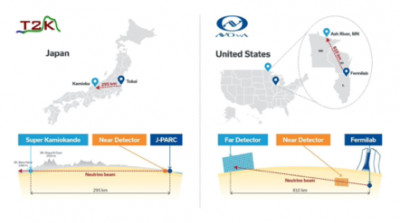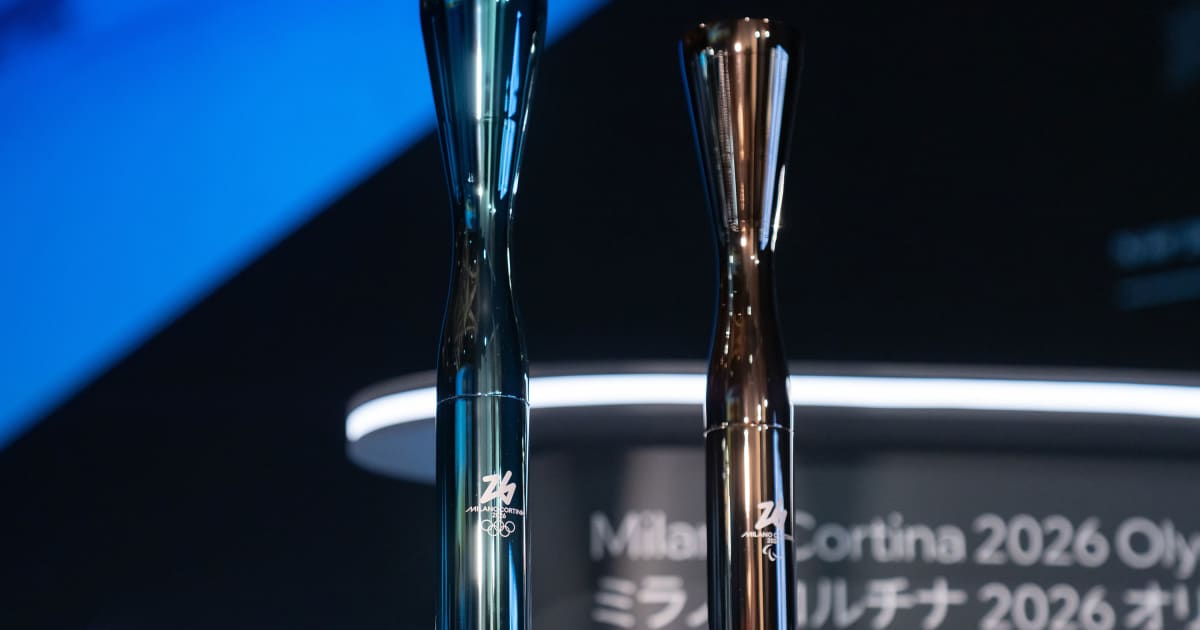Introduction
Prostate cancer (PCa) is the second most commonly diagnosed cancer among men worldwide, accounting for approximately 14.2% of new cancer cases in men, according to the Global Cancer Observatory database of the International Agency…

Prostate cancer (PCa) is the second most commonly diagnosed cancer among men worldwide, accounting for approximately 14.2% of new cancer cases in men, according to the Global Cancer Observatory database of the International Agency…

STONY BROOK, NY — October 22 2025 –-The State University of New York at Stony Brook researchers from the Department of Physics and Astronomy, are part of an international team of physicists conducting the T2K…

The term “cosy crime” describes the reassuring, cardigan-swaddled whodunnits that currently dominate both page and screen, but it carries different connotations for Kelly Reichardt, director of the new heist movie The Mastermind, as it surely…

Virgin Australia has unleashed a new era of travel, becoming the first airline down under to launch a Pets in Cabin service.
The flights have kicked off with services between Melbourne, the Gold Coast, and the Sunshine Coast. Initially launching as a trial until 30 January 2026 before a planned rollout to all eligible domestic flights by late next year.
The service is already proving a hit for sunseekers, with more than half of all Pets in Cabin bookings to date made for the summer season. For many Australians, this means no more difficult goodbyes when the suncream and suitcases get rolled out.
This isn’t the airline’s first first either. Innovation runs in Virgin Australia’s DNA. From pioneering online check-in to introducing the Middle Seat Lottery (making life a little bit sweeter when you draw the short straw), and launching the country’s first Pride Flight – Virgin Australia has a track record of rewriting aviation norms.
To celebrate the inaugural furry flight (VA733 from Melbourne to the Gold Coast), guests were treated to 10,000 Velocity Frequent Flyer Points (enough to redeem a one-way domestic flight) and treated to a special in-flight announcement from none other than Richard Branson. As he put it: “This is history in the making, and I hope it’s making everyone smile”, before adding an obligatory, “woof, woof!”
Allowing pets to travel in the cabin speaks to Virgin Australia’s spirit of doing things differently to make flying just that little bit more wonderful. As the airline’s CEO Dave Emerson put it: “Pets are part of the family, and this new service is about making sure every member, human or furry, can enjoy the journey together. We’ve always believed in doing things differently, and this innovation continues that legacy.”
How it works, in case you’re curious…
Eligible small dogs and cats can travel for an introductory price of $149 per animal, per flight. Pets must travel in an approved soft-sided carrier that fits under the seat in front of their owner.
There will be a limit of four pets per flight, and guests travelling with pets will be seated in designated window seat rows to ensure comfort and safety for all passengers.
Virgin Australia’s advanced air filtration systems remove 99% of airborne particles, including pet dander, to ensure the cabin remains allergy-safe. Guests with allergies can also choose alternative seating, free of charge.
Bookings for Pets in Cabin can be made by calling the Virgin Australia Guest Contact Centre on 13 67 89.
Find more pet-friendly details right here.

Many organizations are merging their HR and IT functions under unified leadership to create a more integrated, data-driven, and agile organization, but this convergence also presents complex challenges that must be addressed
Key takeaways:
As AI continues to transforms the future of work, a growing number of organizations are breaking down traditional departmental silos by merging their HR and IT functions under unified leadership — and many expect this trend to continue in the future. Indeed, 64% of IT leaders surveyed say they believe HR and IT will merge within the next five years. This strategic convergence is a fundamental shift that is compelling organizational leaders to reimagine how work gets done while presenting other complex challenges.
The rapid ascent of AI agents from current tools to a future state in which they are expected to be colleagues is blurring the lines between traditional technical and non-technical roles. As Skillsoft’s Chief People Officer Ciara Harrington recently stated: “There is no role that’s not a tech role.”
For many forward-thinking organizations, merging these departments offers a combination of benefits and paves the way for a more integrated, data-driven, and agile organization, that clearly offer some benefits including:
Holistic workforce architecture — Merging HR and IT enables leaders to design how work is done and better align human skills with hardware, software, and AI. For example, Moderna is reframing workforce planning around workflows by segmenting what technology should do and where humans add irreplaceable value, explains Tracey Franklin, the company’s chief people and digital technology officer.
Streamlined innovation and agility — When HR and IT co-own transformation, organizations can adapt faster to new tech and processes. In another example, Bunq, an online bank, organized its IT and people teams to sit within the same bigger team because they both are building systems that support the rest of the business.
Navigating the risks of merging HR and IT is not without challenges, however, and organizations must carefully address several barriers to progress, which include:
Loss of specialist expertise — The most pressing concern involves diluting critical professional knowledge. “Merging the departments risks losing or diluting the specialist expertise organizations need to thrive,” warns David D’Souza from the Chartered Institute of Professional Development. Indeed, the skillsets of HR and IT professionals involve few areas of overlap.
Cognitive depletion — A risk that is just starting to get the attention it deserves is the danger of over-dependence on AI that can cause reduced cognitive capabilities. “If AI agents do everything with us, we lose skills,” says Skillsoft’s Harrington. Indeed, this long-term capability risk is multifaceted, resulting in core human skills atrophying and bench strength, adaptability, and ethical discernment weakening.
New roles, metrics, and leadership — Perhaps the most challenging areas are those that will determine who will manage the AI agents, how human-AI team performance will be evaluated, and what professional development looks like for hybrid human and AI agent teams. Answering these key questions remains an area of ongoing deliberation.
Likewise, traditional HR metrics don’t fit human-AI teams. Organizations must redefine performance, learning paths, and career progression for both humans and AI. In addition, organizations still need leaders who can navigate the human side of transformation as AI integration accelerates.
To unlock real returns on AI investments and from HR and IT integration, organizations need visionary, cross-functional leadership that sets clear strategy, aligns operations, and equips people to work differently. Must-do actions include:
Developing strategic direction — Research in the recent Thomson Reuters Future of Professionals Report 2025 identifies four interconnected layers for AI success, which include a clear, visible plan for AI adoption (strategy), committed leaders who model the right behaviors (leadership), adjusted workflows and roles to leverage AI (operations), and ways to empower people to learn and set personal AI goals (individuals).
While organizations that align all four layers unlock the greatest value from AI, the first layer, strategy, is the single strongest predictor of AI return on investment, according to the report. And the same is true for successful HR and IT integration. It requires leaders who can bridge both worlds without necessarily being technical experts, while also setting direction and providing vision, allocating capital effectively, removing obstacles, fostering culture, and engaging employees.
Cultivating AI literacy and adaptability — Organizations also must develop comprehensive AI training with responsible AI, including clear usage policies. This includes preparing employees to incentivize experimentation around recreating their own workflows to allow AI to execute repetitive tasks while team members can then focus on more complex problem-solving.
Data-driven cultural transformation — Success requires using data strategically to transform the culture to shift to collaborative human/AI ecosystems. Some companies are using data and building accountability mechanisms to ensure leaders are culture promoters and data stewards. Without this data-centric approach to cultural change, organizations likely will fail to realize the full potential of integrated HR and IT functions.
Yet, no matter what functions are merged, organizational potential is unlocked by thoughtful leadership that centers human adaptation and intentionally orchestrates how people and AI integrate to do the work. Now is the moment for companies to define a clear roadmap, invest in capability-building, and pilot human/AI teams with measurable guardrails to help organizations learn fast, acclimate to new work realities, and scale what works.
You can find out more about how organizations are addressing issues of talent development and management here

Patients with ALK-positive (ALK+) non-small cell lung cancer (NSCLC) “frequently die of cancer-related causes, during hospitalization, and under active treatment,” underscoring the need for tailored palliative and end-of-life care approaches…

Lily Collins‘ Emily Cooper is feeling the love in Rome in the latest teaser trailer for Emily in Paris‘ fifth season, all 10 episodes of which start streaming on Netflix Dec. 18.
The preview highlights her romance with Marcello…

Paul GlynnCulture reporter
 Charlotte Chess Center
Charlotte Chess CenterThe world chess federation (Fide) has said it is examining public attacks former world champion Vladimir…

The Olympic flame will first be carried through Greece before arriving in Athens for the Handover Ceremony with a delegation from the Milano Cortina 2026 Organising Committee at the Panathenaic Stadium on Thursday 4 December 2025.
Following the…